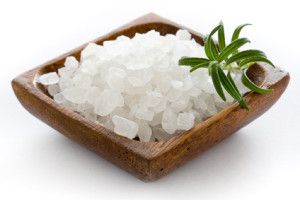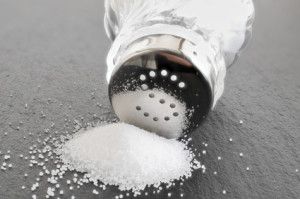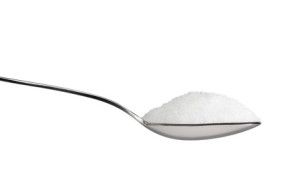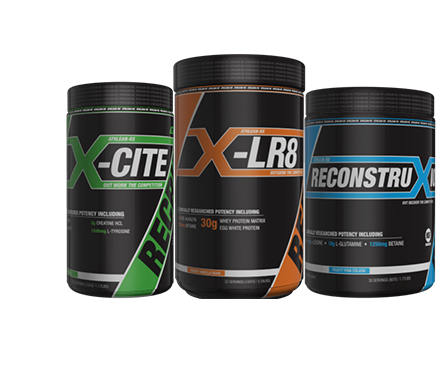 New here? Like Athlean-XX for Women on Facebook to stay up to date with new posts, great fitness and nutrition articles, motivations and inspirations, fitness challenges, Q&As, giveaways and more!
New here? Like Athlean-XX for Women on Facebook to stay up to date with new posts, great fitness and nutrition articles, motivations and inspirations, fitness challenges, Q&As, giveaways and more!
If you’re trying to lose weight and eat healthfully, you’ve probably heard that it’s important to keep your salt intake down. Folks with high blood pressure are also advised by their doctors to follow low sodium diets, and supermarket shelves are stocked with low sodium versions of crackers, chips and sauces. A high sodium diet has also been linked to other heart problems, kidney complications, osteoporosis, dementia and cancer.
Salt is actually a necessary mineral in the body. Sodium in the bloodstream helps the body regulate its fluid and electrolyte balance, balances blood sugars, aids in cell function and helps the intestines absorb nutrients. But, the amount of sodium the body requires for these functions is actually far less than the amount in the typical American diet. This is where the health problems begin.
But, salt contains NO CALORIES. That being the case, can it really cause us to gain weight or prevent us from losing? If we don’t have specific health issues, is it really necessary to watch our salt intake?
Salt Can Cause Direct But Temporary Weight Loss or Gain
Since salt has no calories, its effect on weight is limited to temporary water weight gain. When there is excess sodium in the body, the body will retain fluids to keep the balance. This fluid can cause a small temporary difference in your weight of around 1 – 3 lbs. Likewise, decreasing your salt intake may cause a rapid weight loss to occur within 1 – 2 weeks, as your body will expel its excess fluids. You may lose around 1 lb the first week and up to 3 lbs over 2 weeks. However, continuing to lower your sodium intake won’t help you continue to lose weight since there is only a certain amount of fluids your body can expel.
 Salt Can Cause Indirect Long Term Effects on Your Weight
Salt Can Cause Indirect Long Term Effects on Your Weight
Too much salt in your diet can affect your weight more than you may expect. First, just like consuming sugar, eating salt can trigger the release of dopamine, the feel good neurotransmitter in the brain. Ever had that first corn chip and then couldn’t bring yourself to stop? This is because the dopamine release can cause salty foods to have an addictive effect, causing you to have salty food cravings and driving you to eat more.
Salt also increases thirst, which would be fine if it led us to drink more water. However, research has found that it there’s a close relationship between consumption of salty foods and intake of sugary calorie-dense beverages. It seems that somehow, those salty chips, crackers and popcorn cause us to want to pair them with sodas and fruit drinks. In the long term, giving into this salt-sugar craving combo will have definite effects on our waistline.
Finally, much like sugar, salt can increase insulin production! These insulin spikes change the way your body metabolizes fat. Increased insulin in the bloodstream signals to your body that it should store excess sugar as fat and cease burning fat for energy.
 So, if your goal is weight loss or weight maintenance, your best bet is not to go haywire on salt. By staying below USDA guidelines for sodium intake, you’ll be doing better for your overall health and your waistline. While the average American consumes 3500 mg of sodium per day, the USDA recommends no more than 2300 mg per day, and if you’re age 51 and older, African American or have high blood pressure, diabetes or chronic kidney disease you should consume no more than 1,500 milligrams per day (those who fall into those categories make up 1/2 of the US population by the way!)
So, if your goal is weight loss or weight maintenance, your best bet is not to go haywire on salt. By staying below USDA guidelines for sodium intake, you’ll be doing better for your overall health and your waistline. While the average American consumes 3500 mg of sodium per day, the USDA recommends no more than 2300 mg per day, and if you’re age 51 and older, African American or have high blood pressure, diabetes or chronic kidney disease you should consume no more than 1,500 milligrams per day (those who fall into those categories make up 1/2 of the US population by the way!)
How much salt is 2300 mg? Just 1 tsp! This really is VERY little. With the amount of Americans regularly eating at restaurants and consuming packaged foods, it’s easy to understand how most of us would be over that limit. Restaurants and packaged food companies want their foods to taste great, and increasing salt content is a great and cheap way to improve flavor.
What can we do to make sure our daily sodium levels stay at a healthy level? It’s important to steer clear of packaged and convenience foods. Processed meat, fish and chips are typical high sodium culprits. Also, try to eat at home where you have control over the amount of sodium that goes into your food. Choose whole foods like vegetables, fruits, unsalted nuts, lean protein and whole grain carbohydrates. When you do choose to eat packaged foods, read labels and be mindful of the sodium content.
At Athlean-XX for Women, we’re all about healthy nutrition because it helps us lose weight and have energy for our tough workouts! Our nutrition plan recommends combining proteins and slow-burning carbohydrates at every meal and snack to help keep you feeling full. In fact, the Athlean-XX for Women nutrition plan is anything but a diet – we actually recommend you eat more – 5 – 6 times per day! This type of diet will help turn your metabolism into a fat burning machine – when combined with our killer 30 minute workouts. Yes, with Athlean-XX for Women, eat more, exercise shorter but harder and weigh less! Join us on Team Athlean to start your lifestyle makeover now!
And finally, if you’d like to stay up to date with the AthleanXXforWomen.com blog, then please like us on Facebook, follow us on Twitter and follow us on Pinterest.
P.S. We are a growing community dedicated to and passionate about realistic fitness and nutrition for REAL women. If you enjoyed this post please feel free to share on Facebook, Twitter and Pinterest. It would be incredibly appreciated ![]()










